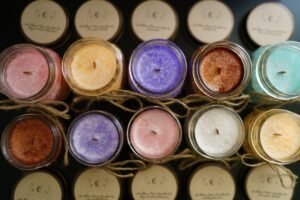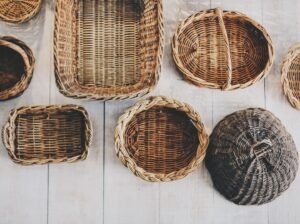Comprehensive Guide of Coin Collecting
Overview
Coin collecting, also known as numismatics, is a fascinating hobby that involves the acquisition, study, and appreciation of coins and currency. This hobby allows enthusiasts to explore history, art, and economics through the lens of currency. Collectors often focus on specific themes, such as historical coins, rare editions, or coins from particular countries or time periods. Coin collecting can be both a rewarding intellectual pursuit and a potential investment opportunity, as certain coins can appreciate significantly in value over time. The hobby encourages meticulous research, as collectors often seek to understand the historical context and significance of their coins, making it a deeply engaging pastime.
History
The history of coin collecting dates back to ancient civilizations, where coins were first minted around 600 BC in Lydia (modern-day Turkey). Initially, coins served as a medium of exchange, but over time, they became objects of interest for collectors. The Roman Empire saw the rise of coin collecting among the elite, who valued coins not only for their monetary worth but also for their artistic designs and historical significance. The Renaissance period further fueled interest in numismatics, as scholars and collectors began to study and catalog coins. In the 19th century, organized coin collecting societies emerged, leading to the establishment of standardized grading systems and the publication of catalogs. Today, coin collecting is a global hobby, with millions of enthusiasts participating in clubs, exhibitions, and online forums.
Popularity and Demographics
Coin collecting enjoys widespread popularity across various demographics, appealing to individuals of all ages and backgrounds. According to the Professional Numismatists Guild, there are an estimated 10 million coin collectors in the United States alone. The hobby attracts a diverse audience, including history buffs, investors, and those with a passion for art and craftsmanship. While traditionally more popular among older generations, recent trends show an increasing interest among younger collectors, particularly through online platforms and social media. The accessibility of information and resources, such as online auctions and educational websites, has made it easier for newcomers to enter the hobby. Additionally, coin shows and local clubs provide opportunities for collectors to connect, share knowledge, and trade coins, fostering a vibrant community around this timeless pastime.
Sponsored Hobbyists and Vendors
Become a Sponsor!
Affiliate Disclaimer: Throughout some sections below, Hobby Spotlight may suggest some tools, equipment or material using affiliate links. By purchasing any of those items, Hobby Spotlight may earn a small commission. This helps fund our website, content and services without directly charging our users.
Getting Started
Essential Coin Collecting Tools:
Beginner
- Coin Album: A storage book for organizing and displaying coins.
- Magnifying Glass: A tool to closely examine coins for details and markings.
- Coin Holder Capsules: Protective cases for individual coins to prevent damage.
- Tweezers: Non-magnetic tweezers for handling coins without leaving fingerprints.
- Coin Scale: A small scale to weigh coins for authenticity checks.
Intermediate
- Coin Grading Guide: A reference book for assessing the condition and value of coins.
- Digital Coin Scale: An accurate scale for weighing coins with digital readout.
- Coin Cleaning Kit: Tools and solutions for safely cleaning coins.
- Coin Storage Box: A secure box for storing multiple coins safely.
- Coin Reference Book: A comprehensive guide to different types of coins and their values.
Basic Requirements and Initial Setup:
- Collecting Space: A dedicated area to store and display your coin collection is essential. This space should be organized and free from moisture and direct sunlight to prevent damage to the coins.
- Storage Supplies: Invest in proper storage materials such as coin holders, albums, or capsules to protect your coins from scratches and environmental factors. Acid-free materials are recommended to avoid corrosion.
- Reference Materials: Acquire books, catalogs, or online resources that provide information on coin values, history, and grading standards. This knowledge will help you make informed decisions about your collection.
Fundamental Skills to Learn:
- Grading Coins: Understanding how to assess the condition of coins based on established grading scales is crucial for valuing your collection.
- Identifying Coins: Learn to recognize different types of coins, including their mint marks, dates, and unique features that distinguish them from others.
- Researching Values: Familiarize yourself with market trends and resources to determine the current value of your coins, which can fluctuate based on demand and rarity.
- Cleaning and Preservation: Knowing how to properly clean and preserve coins without damaging them is vital. Avoid harsh chemicals and learn safe cleaning techniques.
- Networking with Other Collectors: Building relationships with fellow collectors can provide valuable insights, tips, and opportunities for trading or purchasing coins.
Sub-Hobby/Common Activities:
- Numismatics: The study and collection of currency, including coins, paper money, and tokens, focusing on their history and significance.
- Coin Shows and Expos: Attending events where collectors gather to buy, sell, and trade coins, as well as to learn from experts in the field.
- Online Auctions: Participating in online platforms to bid on rare coins, expanding your collection through digital means.
- Metal Detecting: Searching for coins and artifacts in the ground using metal detectors, often leading to exciting finds.
- Creating a Thematic Collection: Focusing on specific themes, such as historical events, geographical locations, or types of coins, to create a more personalized collection.
Terminology:
- Numismatics: The study or collection of currency, including coins, tokens, and paper money.
- Mint Mark: A letter or symbol on a coin indicating the mint where it was produced.
- Obverse: The front side of a coin, typically featuring a portrait or emblem.
- Reverse: The back side of a coin, often displaying a different design or inscription.
- Grade: A classification of a coin’s condition, ranging from poor to uncirculated.
- Rarity: A measure of how uncommon a coin is, often affecting its value significantly.
- Proof Coin: A coin struck with a special process to create a high-quality finish, often intended for collectors.
- Circulation: The process by which coins are used in everyday transactions, affecting their wear and value.
- Die: A metal stamp used to create the design on a coin during the minting process.
- Attribution: The process of identifying a coin’s type, date, and mint mark, often using reference materials.
Advanced Topics and Specializations
Advanced Tools and Equipment:
- Professional Coin Grading Kit: A comprehensive kit that includes tools for grading coins, such as magnifying glasses, grading guides, and coin holders.
- Digital Coin Scale: A precise digital scale for weighing coins accurately, essential for determining their value and authenticity.
- Coin Storage Album: A high-quality album designed for safe storage and display of coins, featuring acid-free pages and protective sleeves.
- Coin Cleaning Kit: A specialized kit with tools and solutions for safely cleaning and preserving coins without damaging them.
- Coin Photography Setup: A professional setup including a lightbox, camera stand, and lighting to capture high-quality images of coins for documentation and sale.
Advanced Projects and Achievements:
- Building a Complete Set: Completing a full collection of a specific coin series, such as the American Silver Eagle or the Lincoln Penny, showcasing dedication and knowledge of numismatics.
- Participating in Coin Shows: Engaging in local or national coin shows to buy, sell, and trade coins, while networking with other collectors and experts in the field.
- Creating a Custom Display: Designing and constructing a personalized display case for showcasing rare or valuable coins, enhancing both protection and presentation.
Advanced Techniques and Methods:
- Grading Coins: Learning the standards of coin grading to assess the condition and value of coins accurately, using tools like magnifying glasses and grading guides.
- Cleaning and Preservation: Understanding the proper methods for cleaning and preserving coins without damaging their surface or reducing their value.
- Researching Coin History: Delving into the historical context of coins, including minting processes, design changes, and market trends to make informed collecting decisions.
Specializations and Niche Areas:
- Ancient Coins: Focusing on coins from ancient civilizations, such as Greek, Roman, or Byzantine, which often require specialized knowledge and research.
- Modern Commemorative Coins: Collecting coins issued to commemorate specific events, anniversaries, or notable figures, often featuring unique designs and limited mintage.
- Error Coins: Seeking out coins with minting errors, such as double strikes or off-center coins, which can be highly sought after by collectors.
- World Coins: Exploring coins from various countries, learning about their cultural significance and historical context.
- Token and Medal Collecting: Expanding the hobby to include tokens and medals, which can represent local businesses, events, or historical milestones.
Future Trends and Innovations:
- Increased use of digital platforms for buying, selling, and trading coins, making it easier for collectors to connect globally.
- Growing interest in cryptocurrency and digital collectibles, leading to a new intersection between traditional coin collecting and modern technology.
- Enhanced educational resources through online courses and webinars, allowing collectors to deepen their knowledge and skills.
- Development of advanced authentication technologies to combat counterfeiting and ensure the integrity of coin collections.
- Emergence of community-driven platforms for sharing collections and experiences, fostering a sense of belonging among collectors.
Technology Integration:
- Mobile Apps for Coin Collecting: Utilizing apps that help track collections, assess values, and connect with other collectors.
- Online Marketplaces: Engaging with platforms that facilitate the buying and selling of coins, providing access to a wider range of items.
- 3D Scanning and Printing: Exploring the use of 3D technology to create replicas of rare coins for educational purposes or display.
- Blockchain for Provenance Tracking: Implementing blockchain technology to verify the authenticity and history of high-value coins.
- Virtual Reality Exhibits: Experiencing virtual coin exhibitions that allow collectors to view and learn about coins from around the world without leaving home.
Further Learning and Resources
Books:
- The Coin Collector’s Survival Manual by Scott A. Travers: This book provides essential information for new collectors, including tips on how to start a collection, understand grading, and avoid common pitfalls.
- Coin Collecting for Dummies by Neil S. Bockian: A straightforward guide that covers the basics of coin collecting, including types of coins, how to value them, and the best practices for maintaining a collection.
- A Guide Book of United States Coins by R.S. Yeoman: Often referred to as the ‘Red Book,’ this annual guide is perfect for beginners, providing detailed information on U.S. coins, their history, and current market values.
- The Comprehensive Catalog of U.S. Coins by Q. David Bowers: An in-depth resource for serious collectors, this catalog offers extensive details on U.S. coins, including rarity, historical context, and investment potential.
- The Encyclopedia of United States Silver & Gold Coins by David W. Lange: A detailed reference for advanced collectors focusing on the history, production, and market trends of U.S. silver and gold coins.
Websites:
- Numismatic Guaranty Corporation (NGC), https://www.ngccoin.com – Provides resources for coin collectors, including grading services, market analysis, and educational articles.
- American Numismatic Association (ANA), https://www.money.org – A leading organization for coin collectors, offering resources, events, and a wealth of educational materials.
- Coin World, https://www.coinworld.com – A comprehensive source for news, articles, and resources related to coin collecting and numismatics.
- PCGS (Professional Coin Grading Service), https://www.pcgs.com – Offers coin grading services, price guides, and a wealth of information for collectors.
- Collectors Universe, https://www.collectors.com – A marketplace and resource hub for collectors, featuring coins, collectibles, and expert advice.
Courses:
- Coin Collecting 101 by Udemy, https://www.udemy.com/course/coin-collecting-101 – A beginner-friendly course covering the basics of coin collecting, including types of coins and how to start your collection.
- Advanced Coin Collecting Techniques by Coursera, https://www.coursera.org/learn/advanced-coin-collecting – An advanced course focusing on valuation, grading, and investment strategies in coin collecting.
- Coin Collecting for Beginners by Skillshare, https://www.skillshare.com/classes/Coin-Collecting-for-Beginners/123456 – A project-based course designed for beginners to learn the fundamentals of coin collecting.
- Numismatics: The Study of Coins by edX, https://www.edx.org/course/numismatics-the-study-of-coins – A comprehensive course exploring the history, types, and significance of coins in various cultures.
- Grading Coins: A Complete Guide by NGC, https://www.ngccoin.com/grading – An in-depth course on how to grade coins accurately, essential for serious collectors.
Content Creators and Community
Content Creators:
- Coin Collecting Info (YouTube): A channel dedicated to educating viewers about coin collecting, featuring tips on how to start, care for coins, and identify valuable pieces.
- The Coin Geek (YouTube): Offers insights into the coin market, grading tips, and showcases rare coins, helping collectors make informed decisions.
- Coin Collecting (Instagram): A visual platform where collectors share their collections, tips, and the latest news in the coin collecting community.
- Coin Collectors Group (Facebook): A vibrant community for collectors to share their finds, ask questions, and connect with fellow enthusiasts.
- Coin World (Website): A leading source for news, articles, and resources related to coin collecting, including market trends and upcoming events.
- Coin Help You (YouTube): Provides educational videos on coin identification, grading, and collecting strategies, aimed at both beginners and experienced collectors.
- Coins and More (Website): A blog that covers various aspects of coin collecting, including tips, history, and personal stories from collectors.
Online Forums and Social Media Groups:
- Reddit – /r/CoinCollecting: A community for sharing tips, asking questions, and discussing all things related to coin collecting.
- Facebook Coin Collecting Groups: Various groups where enthusiasts share their collections, trade coins, and provide advice.
- Coin Community (Forum): An online forum dedicated to discussions about coin collecting, trading, and numismatic news.
- Instagram Hashtags (#coincollecting, #numismatics): Follow these hashtags to discover new coins, collecting tips, and connect with other collectors.
- Pinterest Boards: Explore boards dedicated to coin collecting for inspiration, tips, and educational resources.
Local Clubs and Organizations:
- Local Coin Clubs: Many cities have coin clubs that meet regularly to discuss collecting, trade coins, and host educational events.
- Numismatic Associations: National and regional organizations that provide resources, networking opportunities, and events for coin collectors.
- Community Workshops: Some libraries and community centers offer workshops on coin collecting basics and preservation techniques.
- Coin Shows: Local shows where collectors can buy, sell, and trade coins while networking with other enthusiasts.
- Meetup Groups: Platforms like Meetup.com host local gatherings for coin collectors to share their interests and knowledge.
Events, Meetups, and Conventions:
- American Numismatic Association (ANA) Shows: Major events featuring exhibits, educational seminars, and opportunities to buy and sell coins.
- Local Coin Shows: Regional events that allow collectors to meet, trade, and learn about coins.
- Coin Collecting Conventions: Gatherings that focus on networking, education, and showcasing rare coins.
- Workshops at Coin Shows: Educational sessions led by experts on various aspects of coin collecting and preservation.
- Annual Coin Collectors’ Day: Celebrated in various locations, this event promotes the hobby and encourages new collectors to join.
Associated Hobbies
- Numismatics: The study and collection of currency, including coins, paper money, and tokens. Numismatics encompasses the historical, artistic, and economic aspects of currency, making it a rich field for enthusiasts.
- Antique Collecting: Many coin collectors also enjoy collecting antiques, as both hobbies involve a passion for history and craftsmanship. Antique coins, in particular, can be a fascinating intersection of these two interests.
- History Research: Coin collecting often leads to a deeper interest in history. Collectors may research the historical context of their coins, including the civilizations that minted them and the events they commemorate.
- Metal Detecting: This hobby complements coin collecting, as enthusiasts often search for lost coins and artifacts using metal detectors. The thrill of discovery can enhance the overall experience of collecting.
- Art and Design Appreciation: Many collectors develop an appreciation for the artistry involved in coin design. This can lead to an interest in graphic design and sculpture, as collectors study the techniques used by engravers and artists.
- Investment and Finance: Some collectors view coins as an investment opportunity. Understanding market trends, valuations, and the potential for appreciation can turn coin collecting into a financially rewarding hobby.
- Community Engagement: Coin collectors often join clubs and attend shows, fostering a sense of community. These gatherings provide opportunities to share knowledge, trade coins, and participate in educational seminars.
- Photography: Many collectors enjoy photographing their coins to document their collections. This can lead to an interest in photography techniques, lighting, and presentation, enhancing the visual appeal of their hobby.
Cost and Budgeting
Initial Investment and Ongoing Costs:
- Initial Investment: The cost to start coin collecting can vary widely based on the type of coins you wish to collect. A beginner can start with a modest investment of around $50 to $100 for basic supplies such as a coin album, magnifying glass, and a few coins. However, if you are interested in more valuable coins or specific types, such as rare or historical coins, the initial investment can range from a few hundred to several thousand dollars.
- Ongoing Costs: Ongoing costs may include purchasing additional coins, which can range from a few dollars for common coins to thousands for rare ones. You may also want to invest in protective supplies like coin holders and storage boxes. Additionally, if you choose to attend coin shows or join clubs, there may be membership fees or travel expenses involved.
Budget-Friendly Options:
- Start with Common Coins: Focus on collecting common coins, such as state quarters or pennies, which can often be found in circulation or purchased in bulk at low prices.
- Join a Coin Club: Many local coin clubs offer opportunities to buy, sell, and trade coins among members, often at lower prices than retail.
- Online Auctions and Marketplaces: Websites like eBay or local classifieds can provide access to affordable coins, allowing you to bid on items or negotiate prices.
Where to Buy:
- Local Coin Shops: These shops often have knowledgeable staff who can help you find coins that fit your collection and provide valuable insights.
- Coin Shows: Attending coin shows allows you to browse a wide variety of coins from different dealers, often at competitive prices, and provides a chance to network with other collectors.
- Online Retailers: Websites like APMEX, JM Bullion, and CoinWorld offer a vast selection of coins for purchase, often with detailed descriptions and images to help you make informed decisions.
Money Making
How to Turn Coin Collecting into a Profession or Side Hustle:
- Coin Dealer: Start your own coin dealership by buying and selling coins. You can operate online through platforms like eBay or set up a physical shop. Building a reputation as a knowledgeable dealer can attract collectors and investors looking for rare coins.
- Numismatic Consultant: Use your expertise in coin collecting to offer consulting services. Help clients build their collections, assess the value of their coins, or provide advice on investment strategies in numismatics. This can be done on a freelance basis or as part of a larger financial advisory service.
- Coin Grading Service: If you have a keen eye for detail and knowledge of grading standards, consider starting a coin grading service. This involves evaluating coins and assigning them a grade based on their condition, which can significantly affect their market value. You can charge fees for your grading services and provide certificates of authenticity.
- Coin Collecting Workshops and Seminars: Share your passion and knowledge by organizing workshops or seminars on coin collecting. Teach others about the history of coins, how to start a collection, and the importance of proper storage and care. You can charge a fee for attendance and even offer personalized coaching sessions.
- Content Creation and Blogging: Start a blog, YouTube channel, or social media account dedicated to coin collecting. Share tips, reviews of coin shows, and insights into the market. Monetize your content through advertising, sponsorships, and affiliate marketing, turning your hobby into a profitable venture.
Benefits and Enjoyment
Physical, Mental, and Social Benefits:
- Physical Activity: While coin collecting may not seem physically demanding, it can involve activities such as attending coin shows, visiting shops, or participating in community events. These activities encourage movement and can lead to a more active lifestyle.
- Mental Stimulation: Coin collecting requires research, attention to detail, and critical thinking. Collectors often study the history, rarity, and value of coins, which can enhance cognitive skills and keep the mind sharp.
- Social Connection: Coin collecting fosters a sense of community among enthusiasts. Joining clubs, attending conventions, or participating in online forums allows collectors to share knowledge, trade coins, and build friendships with others who share their passion.
Success Stories and Inspirational Examples:
- Eric Jordan: A passionate coin collector who started with a small collection as a child, Eric turned his hobby into a successful business. He now runs a well-known numismatic shop and has authored several books on coin collecting, inspiring others to pursue their interests.
- Q. David Bowers: A prominent figure in the numismatic community, Bowers is a renowned author and expert in coin collecting. His extensive knowledge and contributions to the field have inspired countless collectors and helped elevate the hobby’s status.
- John Albanese: Founder of the Professional Coin Grading Service (PCGS), Albanese revolutionized the coin collecting industry by introducing a standardized grading system. His innovations have made coin collecting more accessible and trustworthy for collectors worldwide.
Ways to Enjoy and Grow in the Hobby:
- Expand Your Knowledge: Read books, attend workshops, and follow online resources to deepen your understanding of numismatics. The more you know, the more enjoyable and rewarding your collecting experience will be.
- Join a Coin Collecting Club: Becoming a member of a local or online coin club can provide valuable networking opportunities, access to expert advice, and chances to participate in events and exhibitions.
- Attend Coin Shows and Auctions: Visiting coin shows and auctions allows you to see a wide variety of coins, meet other collectors, and potentially find rare pieces to add to your collection. These events can be both educational and exciting.
Challenges and Solutions
Common Challenges Faced by Hobbyists:
- Cost of Coins: Coin collecting can be an expensive hobby, especially when seeking rare or high-quality coins. Prices can vary significantly based on rarity, condition, and demand, making it essential for collectors to budget wisely.
- Authenticity Issues: With the rise of counterfeit coins, collectors often face challenges in verifying the authenticity of their purchases. This can lead to financial loss and disappointment if a collector unknowingly buys a fake coin.
- Storage and Preservation: Properly storing and preserving coins is crucial to maintaining their value. Many collectors struggle with finding the right materials and methods to protect their collections from damage, such as corrosion or physical wear.
- Knowledge and Research: The vast amount of information available about coins can be overwhelming for beginners. Collectors may find it challenging to identify coins, understand grading systems, and stay updated on market trends.
Tips for Overcoming These Challenges:
- Set a Budget: Determine a budget for your coin collecting hobby and stick to it. This will help you make informed decisions and avoid overspending on coins.
- Educate Yourself: Invest time in learning about coin collecting through books, online resources, and local clubs. Understanding the basics of coin grading, history, and market trends will enhance your collecting experience.
- Use Trusted Dealers: When purchasing coins, always buy from reputable dealers or auction houses. Look for dealers who are members of recognized numismatic organizations to ensure authenticity.
- Invest in Proper Storage: Use coin holders, albums, or capsules made from archival-quality materials to protect your coins from environmental damage. Avoid using PVC holders, as they can cause corrosion over time.
Safety Considerations and Best Practices:
- Always handle coins with clean hands or wear cotton gloves to prevent oils and dirt from damaging the surface.
- Store your coins in a cool, dry place away from direct sunlight to prevent fading and deterioration.
- Keep your collection organized and cataloged to easily track your coins and their values.
- Be cautious when attending coin shows or auctions; keep your collection secure and be aware of your surroundings to prevent theft.
- Engage with the coin collecting community through clubs and online forums to share knowledge, tips, and experiences while building a network of fellow collectors.
Conclusion and Encouragement
Recap of Key Points:
- Coin collecting is a fascinating hobby that allows enthusiasts to explore history, art, and culture through currency from different eras and regions.
- There are various types of coins to collect, including ancient coins, modern coins, commemorative coins, and error coins, each offering unique stories and values.
- Building a collection can be both a rewarding and educational experience, as collectors often research the historical significance and background of each coin.
- Coin collecting can also be a social activity, with clubs and online communities where collectors share knowledge, trade coins, and attend events.
- With the potential for value appreciation, coin collecting can serve as a hobby that not only brings joy but may also provide financial benefits over time.
Encouragement to Start and Enjoy the Hobby:
- Coin collecting is an accessible hobby that anyone can start with minimal investment. You can begin by searching through your spare change or visiting local coin shops.
- This hobby encourages curiosity and learning, as you will discover the stories behind each coin, including the historical events and figures they represent.
- Joining a coin collecting club or online forum can enhance your experience, providing opportunities to meet fellow collectors, share tips, and participate in trading.
Final Tips and Motivational Thoughts:
- Always handle coins with care to preserve their condition. Use gloves and proper storage methods to protect your collection from damage.
- Stay informed about the market and trends in coin collecting. Reading books, attending seminars, and following reputable sources can enhance your knowledge and skills.
- Enjoy the journey of building your collection. Focus on the joy of discovery and the stories behind each coin rather than solely on their monetary value.

















